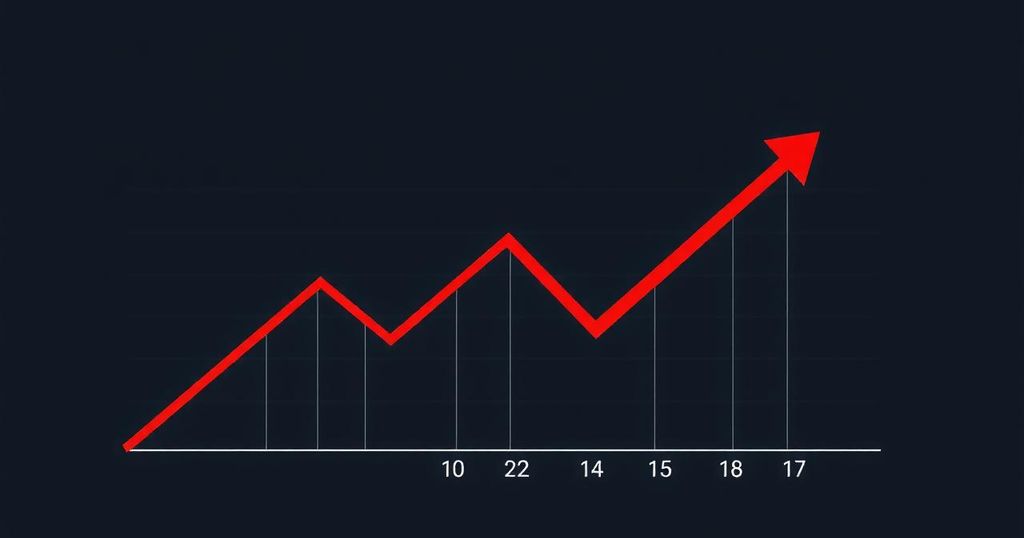Intel Stock Declines Amid Geopolitical Tensions and Tariff Uncertainties
Intel’s stock has declined 3.22% to $23.42 amid geopolitical concerns surrounding China and uncertainties about upcoming tariffs. The Trump administration’s trade restrictions on Chinese companies are impacting U.S. chipmakers. Financially, Intel demonstrates mixed indicators with a concerning risk of bankruptcy, yet maintains potential for growth in emerging sectors.
Intel Corporation (stock symbol: INTC) has experienced a notable decrease in its share price, falling by 3.22% to settle at $23.42. This decline is part of a broader trend impacting major indices, including the S&P 500 and Nasdaq Composite, driven primarily by escalating geopolitical tensions concerning China, which have adversely affected the semiconductor industry as a whole.
The recent decision by the Trump administration to include an additional 80 Chinese companies on its trade prohibition list has distinctly affected U.S. chipmakers like Intel. This action reflects escalating geopolitical strains between the United States and China, significantly impacting top semiconductor firms, such as Nvidia and Intel.
Compounding the situation is the uncertainty regarding new tariffs anticipated to take effect on April 2. Market participants are increasingly anxious about these tariffs, especially following indications from the administration suggesting a reduction in exemption opportunities, thereby intensifying the negative impact on Intel and similar enterprises.
From an investment perspective, Intel presents a complicated situation. With a market capitalization of approximately $101.41 billion, its current Price-to-Earnings (P/E) ratio stands at 0, which suggests difficulties with profitability. Additionally, the Price-to-Book (P/B) ratio is recorded at 1.02, indicating a relatively modest valuation against its book value. The GF Value assessment indicates that the stock is “Modestly Undervalued,” with an estimated value of $26.54.
However, notable financial warning signs are present, including a concerning Altman Z-Score of 1.21, which suggests an increased risk of bankruptcy within the next two years. Furthermore, Intel has experienced a consistent decrease in gross margin and revenue per share, reflecting ongoing financial challenges.
On a more positive note, the Beneish M-Score of -2.92 suggests that Intel is unlikely to engage in financial manipulation. The company continues to hold a solid position within the semiconductor industry and is expanding its reach into emerging sectors, such as automotive and the Internet of Things (IoT), effectively leveraging its manufacturing expertise.
In summary, Intel Corporation’s recent stock decline primarily stems from heightened geopolitical tensions and changes in U.S. trade policy regarding China. While the company has strong industry positioning and growth potentials in innovative sectors, it also faces significant financial challenges, including warning signs of potential bankruptcy. Investors must carefully assess these factors to make informed decisions regarding their investment in Intel.
Original Source: www.gurufocus.com








Post Comment